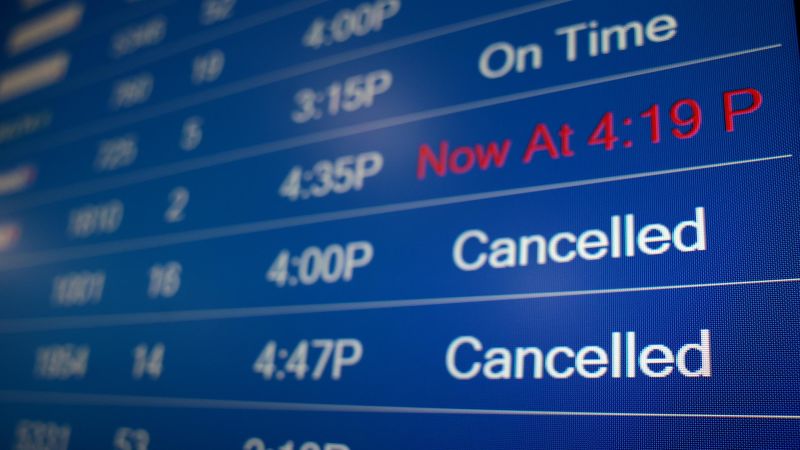CNN
—
Bad weather. Computer glitches. Air traffic controller shortages. Holiday crunches. Accidents and investigations. Unruly passengers. So many things can cause a flight to be delayed or canceled.
It’s no wonder travelers are wary about making it to their destinations on time – or at all. (And even if they make it, their lost luggage might not).
Here’s some advice for navigating a very complicated and frustrating system when flights are delayed or canceled.
As bad as it is to find out your flight has been delayed for a long time, or worse, canceled, it’s better to find out from the comfort of home or a hotel room.
“Check your flight status before you go the airport. Most of these notifications are not happening at the last minute,” said Scott Keyes, the founder of Going.com. “Save yourself the drive to the airport.”
Other tips from Keyes:
- Sign up for airlines’ free text alerts on the status of flights when you buy your ticket. Also, download your carrier’s app.
- Put your airline and flight number directly into a Google search bar to retrieve the flight status that way.
- Check the website FlightAware for larger flight trends across the country.
- Hop on waiver offers ahead of bad weather quickly. Early birds have the best choices of the remaining seats and flights.
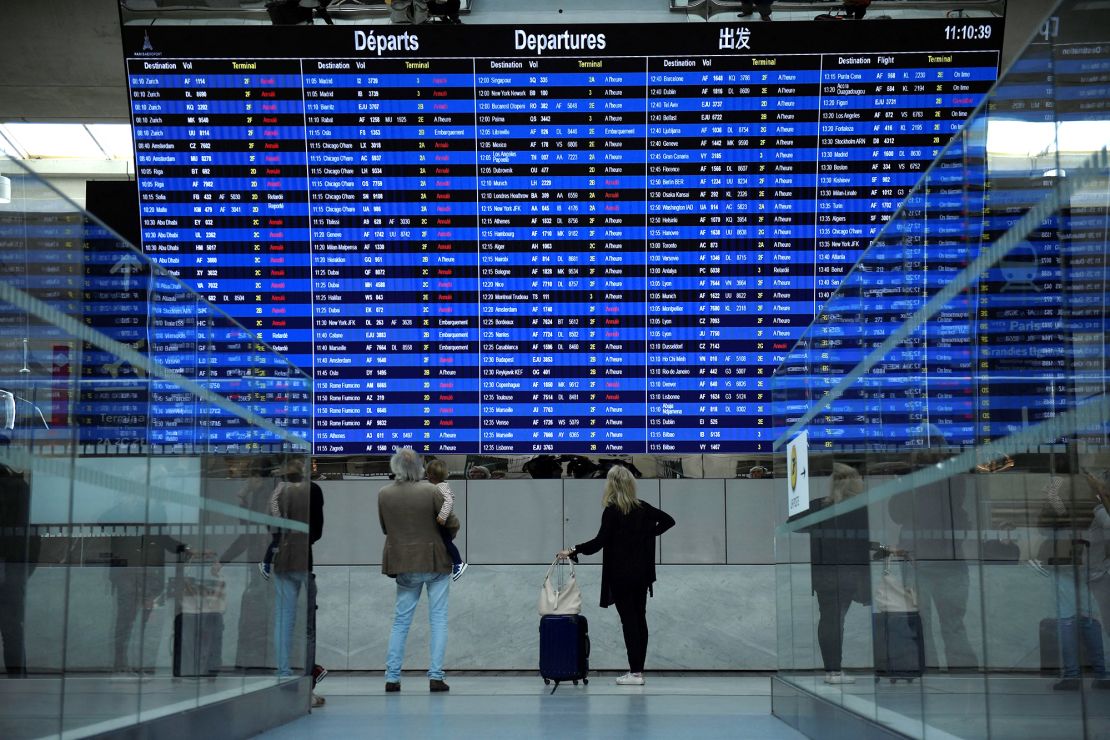
Sometimes, the delays and cancellations happen after you’ve arrived at the airport. Once the bad news has been delivered, what should you do?
Keyes said to head as fast as you can to the airline agents’ desk. “It’s going to make a difference who arrives first. It’s first-come, first-serve. Positioning yourself close to the desk can pay off,” Keyes said.
Then you might want to call up your carrier while you’re waiting. It might be faster to get through to a call center. “Whatever happens first, great,” he said.
Other tactics you can try:
- Go to a self-serve kiosk, American Airlines and United Airlines advise.
- Use social media to your advantage, the travel advice website Travel Lens suggests. Try contacting the airline via X or other platforms when calls aren’t going through.
- Try an international call center for your carrier, Keyes suggests. Calls to US domestic numbers might have longer waits.
Attitude and research matter
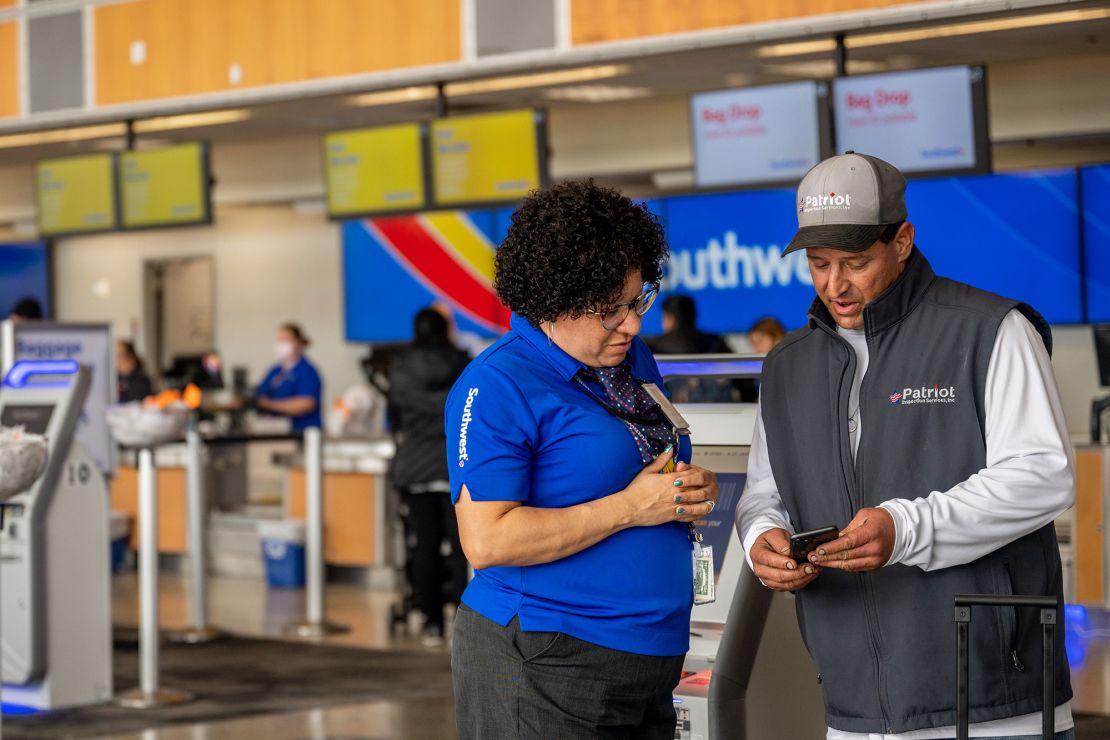
Whether you’re dealing with an agent in person or over the phone, how you approach things can make a big difference.
“Honey attracts more flies than vinegar,” Keyes said. “Look at this from the airline agents’ perspective. … The agent is the one who has the most ability to help you. Asking nicely and sympathetically is far more likely to get what you want than being a jerk about it.”
He had another tip when it’s your turn to talk to an agent about making new arrangements: “Come prepared to offer your own options already. Doing your own research is absolutely helpful.”
Other considerations:
- Book directly with an airline if the price is the same. If you’ve booked through a third-party site, you’ll have to deal through them when there’s a cancellation.
- Avoid layovers when booking if possible, the consumer advocacy group US PIRG suggests. The more times you stop, the more chances for something to go wrong.
- Regarding tarmac delays, airlines must provide working bathrooms the entire time, US PIRG says. “After two hours, you must have food and water. After three hours, you must be in the air or back in the airport – or the airline faces massive fines.”
Cooperation between airlines could work in your favor.
“When flights are canceled, many airlines have the option of putting you on another carrier’s flight because they have interline agreements,” Lousson Smith, product operations specialist at Going.com, told CNN Travel.
“This means, for example, if Delta is having service interruptions but American is running a flight to your destination, you may be able to get on that flight.”
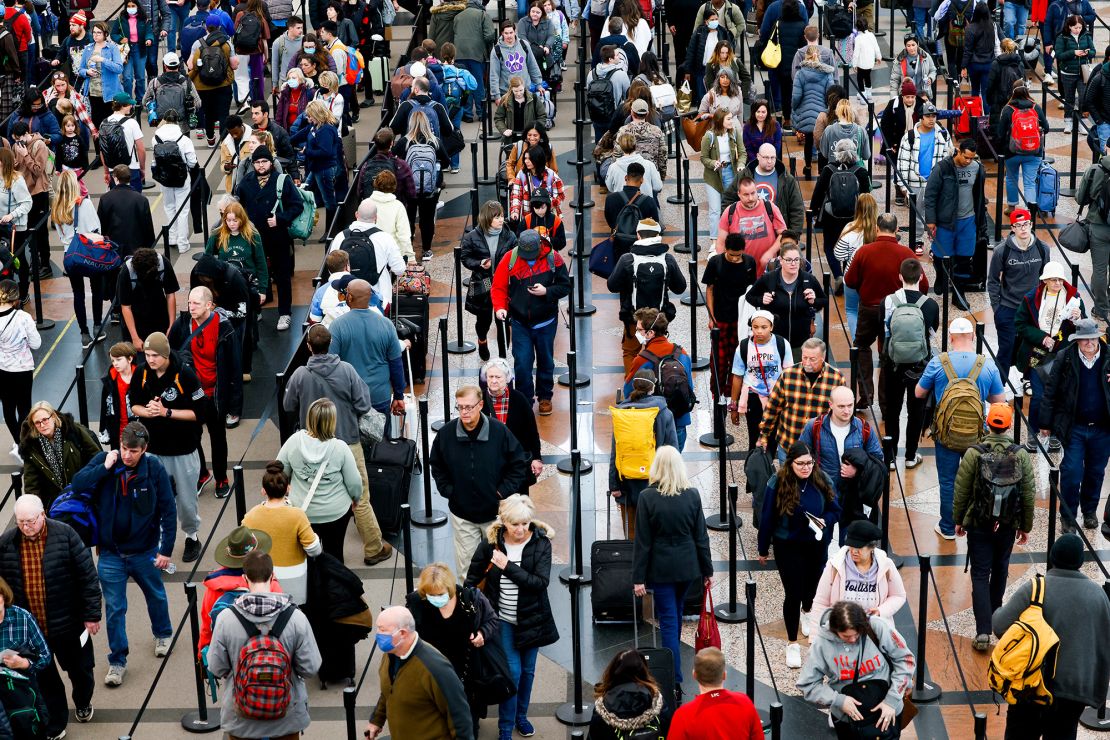
Thanks to changes in frequent flyer programs over the past several years, airlines often still have flights available with miles even when demand is high during a weather event, Julian Kheel, founder and CEO of Points Path, told CNN Travel in an email
“You’ll need to be prepared to spend a lot of miles, and you may not get the best value for them. But you could save yourself some significant cash if you’re trying to evacuate away from a storm,” Kheel said.
“Most US airlines now allow you to cancel flights booked with frequent flyer miles without any fee or penalty right up until departure time. That means you can book multiple alternate flights on different airlines using your miles in case one of them ends up delayed or canceled.
“But don’t try to book alternate flights on the same airline, as duplicates can be automatically canceled. And don’t forget to cancel the remaining flights you don’t end up using so you can get your miles back.”
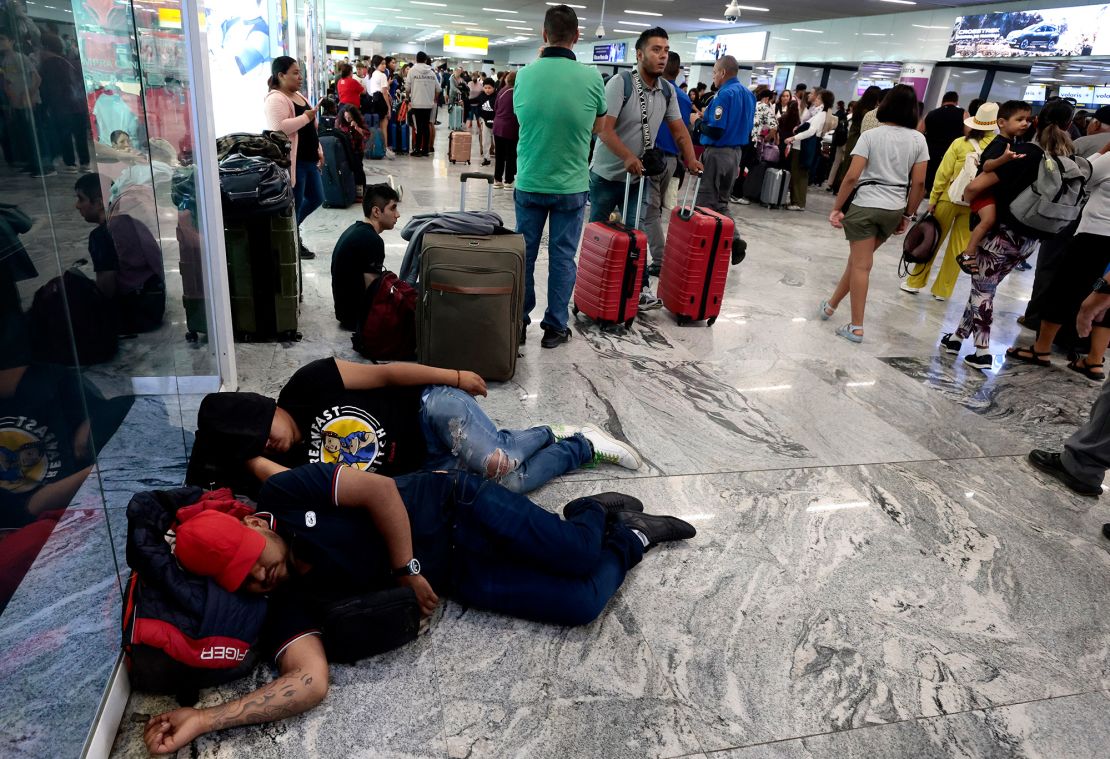
What do you do if it looks like you’re not going to be able to fly out until the next day and you’re not in your home city?
“Ask the airline to put you up in a hotel or give you a hotel voucher. They might do it; they might not. It’s not required by law,” Keyes said. They’re less likely to do it there’s a weather issue, he said.
Many airlines have committed to offering meal and hotel vouchers in certain cases. The US Department of Transportation has a dashboard that tracks those commitments.
Other things to consider:
- Book your flight with a credit card, Smith said: “Many credit cards offer travel protections such as reimbursement if a flight cancellation forces you to get a hotel, meals, etc.”
- Consider hunkering down at the airport rather than going to and from a hotel if your flight is delayed but not canceled. A lot depends on your personal comfort level and the estimated wait time, Keyes said.
- Check whether there is a hotel room available within the airport.
- Try getting into an airport lounge if you can, where you can recharge your phone and rest more easily, the Points Guy advises.
- Make safety your No. 1 priority. If extreme weather is causing air travel disruption, trying to make the journey by road could be hazardous, Keyes warns.
Travel insurance and receipts

Consider buying travel insurance, advised Airport Parking Reservations in an email to CNN Travel.
It said “most travel insurance policies provide additional cover for travel uncertainty. Additional [coverage] usually becomes applicable if your flight is postponed by more than 12 hours due to a strike, adverse weather or a mechanical breakdown.”
The site also advises that you keep any receipts of airport purchases. You can try to get the money back from the airline later.

